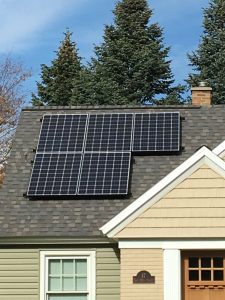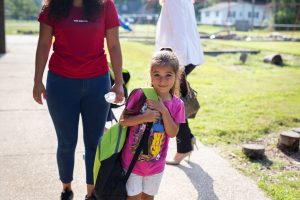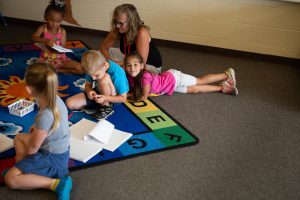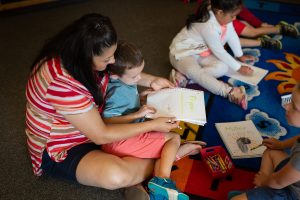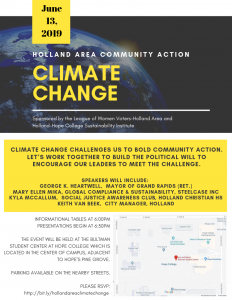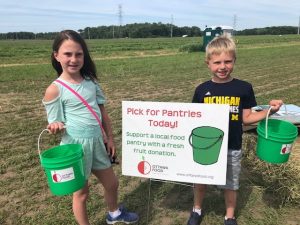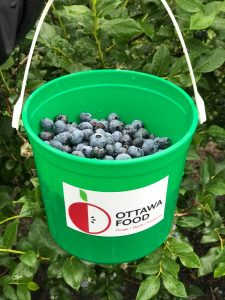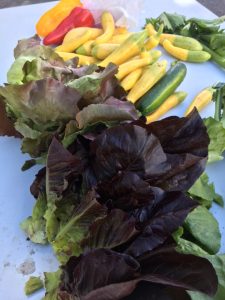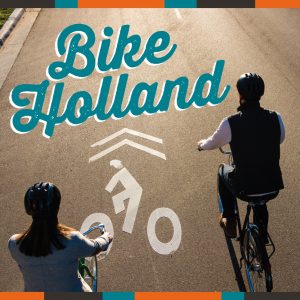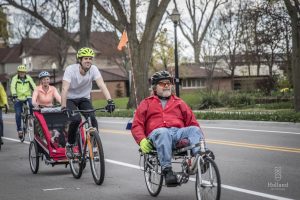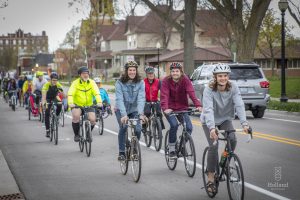By Jennifer Owens, Lakeshore Advantage
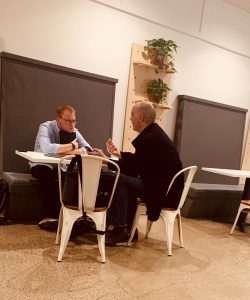
When I left my economic development role in Ann Arbor, one of the things I missed the most professionally was overhearing entrepreneurs pitching their ideas to potential investors at coffee shops, oftentimes, college kids talking about a new technology they had started at U-M’s lab. Sometimes I would interrupt if I could add value. Other times, I would just smile and enjoy the energy.
To me this energy is the measure of a vibrant entrepreneurial ecosystem. You can see it, hear and feel it. Sometimes you couldn’t resist interrupting just to be part of it.
Recently, I was at Ferris Coffee. As I looked around and listened in, I heard Matt Gira sharing his business model for FounderCo with Garrick Pohl. Garrick is a serial entrepreneur working on a new technology startup, Innerprise. After Matt pitched, Garrick pitched Matt on integrating his technology into his company.
I am not sure if a match was made between the two, but I had to interrupt this conversation and tell them how encouraged I was to hear their discussion. I felt it, and I saw it. The energy is here. Our ecosystem is beginning to thrive.
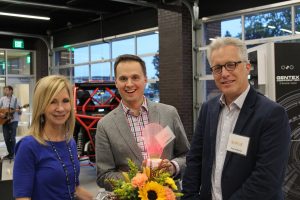
SURGE, powered by Lakeshore Advantage, is a one-stop resource for West Michigan entrepreneurs with startup companies in early and idea-stage growth. Offering startups navigation, connection and support helps grow the primary businesses of tomorrow, fosters a culture of innovation and makes ours a vibrant entrepreneurial ecosystem that attracts top technical talent. People want to live where new ideas thrive.
Allegan and Ottawa counties are two of the fastest growing counties in Michigan, with Ottawa County leading the state at a clip of 10 percent population growth since 2010. People are choosing to live in West Michigan, and 69 percent of primary employers we interviewed last year have plans to grow here in the next three years. For four years in a row, WalletHub has named Holland the Best Small City to Start a Business.
As we continue to look forward to ensure long-term economic success, we need to be a welcoming community accepting of new ideas, new residents and a place where innovation and the workforce of today and tomorrow can thrive.
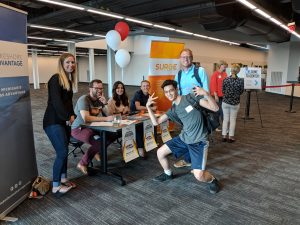
How do we create our desired picture for our community’s future, and how do we improve? We watch. We listen. We analyze the data. We pay attention and invest time, energy and resources to fill the gaps. We encourage. We lead.
In our community, I am very encouraged to see diversity and inclusion efforts at public and private sector organizations growing so that people feel welcome. Leaders are making strides to increase housing inventory at all workforce income levels. Business and community leaders support our primary employers of tomorrow through their invaluable involvement as mentors, investors, encouragers and in countless other ways.
Through this entrepreneurial support, we continue the legacy of embracing innovation and new ideas and make ours a place where entrepreneurs are successful at creating a profitable business around the next big idea. These actions address sustainability at the roots – ensuring current and future generations want to live and work in our vibrant economy.
When you listen, what do you hear? Encourage the good, and take action to fill the gaps you see to make ours a sustainable community with a bright future.
Jennifer Owens is president of Lakeshore Advantage, a regional non-profit economic development organization whose passion is to ensure good jobs in a vibrant economy for current and future generations.
![]() This Week’s Sustainability Framework Theme
This Week’s Sustainability Framework Theme
Economic Development: Businesses and the local consumers are driving engines that generate capital for growth and development. We want to be a location of choice for new business and industry.
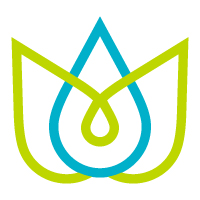 ABOUT THIS SERIES
ABOUT THIS SERIES
Living Sustainably is a collection of community voices sharing updates about local sustainability initiatives. It is presented by the Holland-Hope College Sustainability Institute, a joint project of Hope College, the City of Holland and Holland Board of Public Works. Go to www.hope.edu/sustainability-institute for more information.



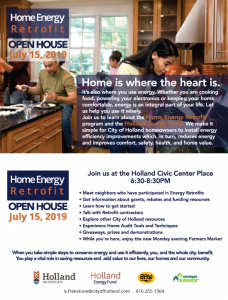 Although we had a late start to summer, is your home already too hot – especially that second or third floor? Now think back just several months ago. Remember how cold some of your rooms were during the Polar Vortex?
Although we had a late start to summer, is your home already too hot – especially that second or third floor? Now think back just several months ago. Remember how cold some of your rooms were during the Polar Vortex?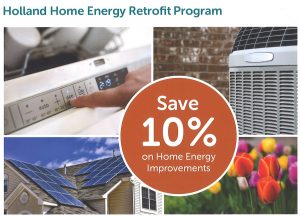
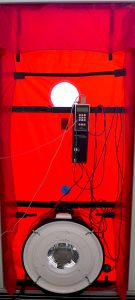
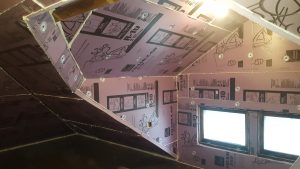
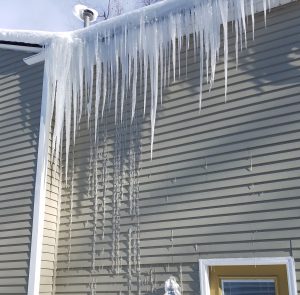
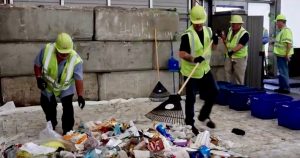
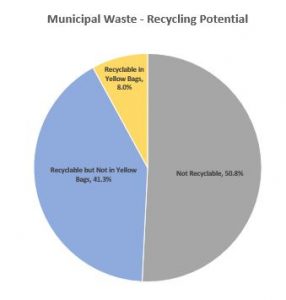
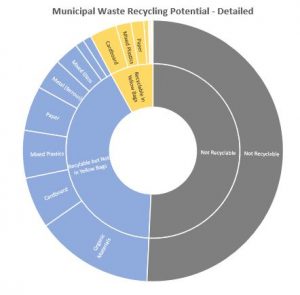
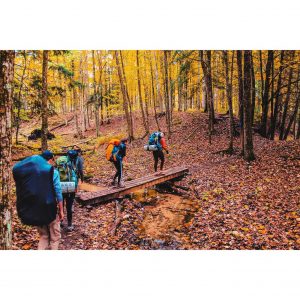


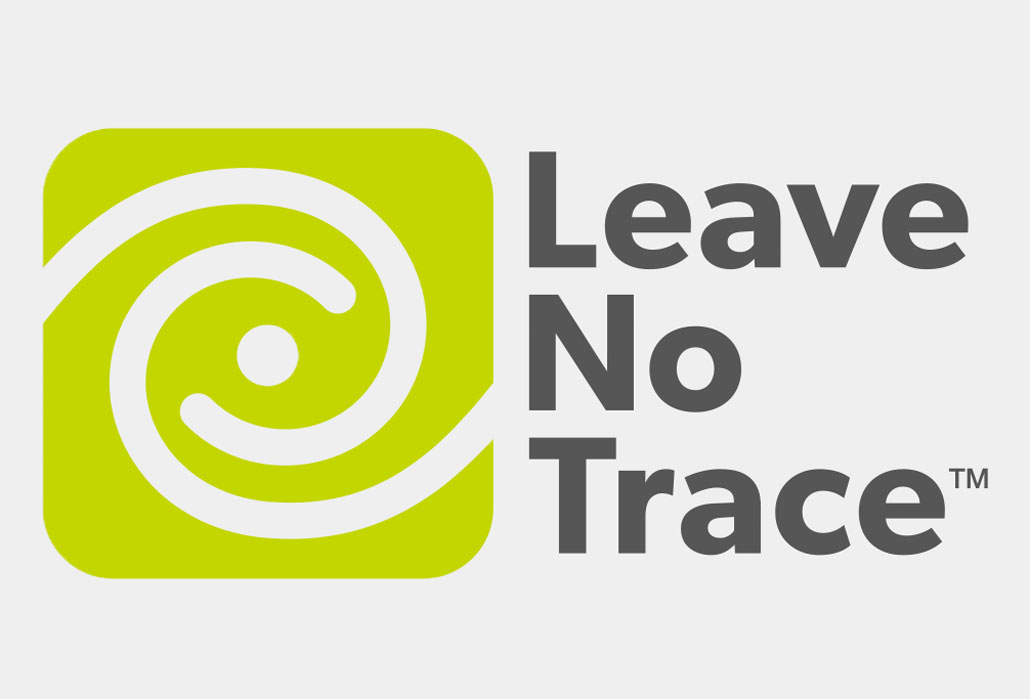 The seven principles of Leave No Trace are: Planning ahead, camping on durable surfaces, disposing of waste properly, leaving what you find, minimizing campfire impacts, respecting wildlife, and being considerate of other visitors. You can learn more about the essentials of Leave No Trace at
The seven principles of Leave No Trace are: Planning ahead, camping on durable surfaces, disposing of waste properly, leaving what you find, minimizing campfire impacts, respecting wildlife, and being considerate of other visitors. You can learn more about the essentials of Leave No Trace at 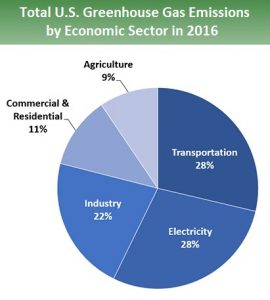 There is plenty of news related to climate change these days. The planet’s climate has constantly been changing over geological time, but now scientists are concerned that the natural fluctuation is being increased by an upsurge in greenhouse gases from human activities.
There is plenty of news related to climate change these days. The planet’s climate has constantly been changing over geological time, but now scientists are concerned that the natural fluctuation is being increased by an upsurge in greenhouse gases from human activities.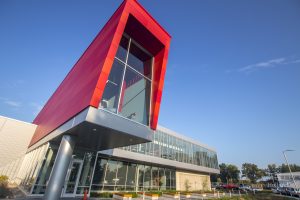 The impacts of climate change can be seen around the world with increasing water scarcity in dry areas, torrential downpours in wet regions and more severe heat waves and wildfires. The cost to the United States economy alone could be over $200 billion from heat-related deaths, sea level rise and infrastructure damage by the end of the century.
The impacts of climate change can be seen around the world with increasing water scarcity in dry areas, torrential downpours in wet regions and more severe heat waves and wildfires. The cost to the United States economy alone could be over $200 billion from heat-related deaths, sea level rise and infrastructure damage by the end of the century.